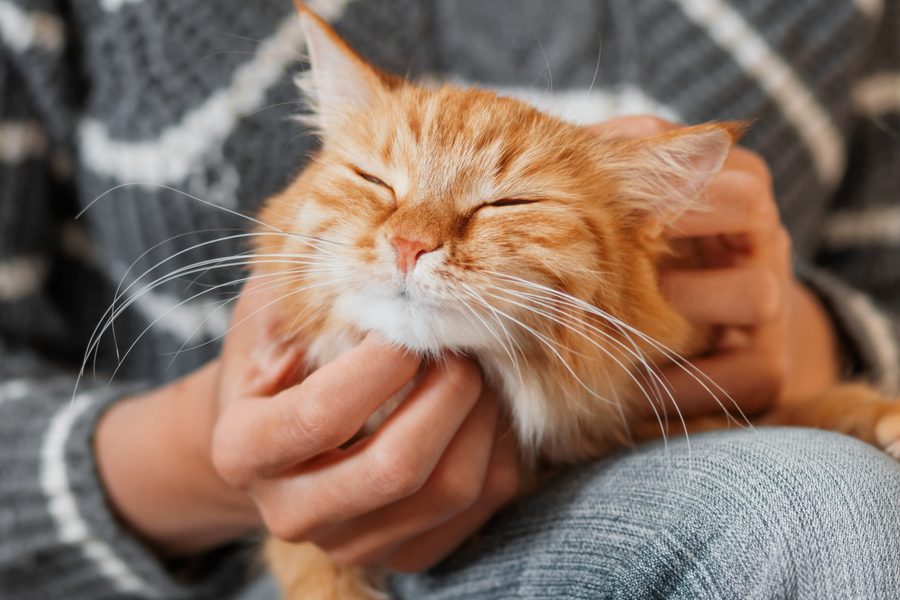Cats, like people, need proper nutrition to maintain their health and well-being. While a balanced diet is essential, sometimes cats require additional support to meet their specific needs. Whether due to aging, dietary gaps, or underlying health issues, supplements can provide essential nutrients that may be missing from their food.
Using the right supplements can support your cat's mobility, coat, digestive health, and overall well-being. This article will explore why supplements, particularly cat joint support supplements, are important for your cat’s long-term health and quality of life.
How Can Supplements Support My Cat’s Health?
Cats, particularly as they age, may require supplements to maintain optimal health. Even if they are on a well-balanced diet, certain factors can lead to nutritional gaps. Cats are obligate carnivores, so their bodies are designed to thrive on meat, but they can sometimes lack essential nutrients like Omega-3 fatty acids, vitamins, and minerals.
Older cats, for example, often experience joint pain and stiffness, which can be alleviated with targeted supplements. Some cats may also suffer from skin and coat issues, digestive problems, or weak immune systems, which can be supported with the right nutrients.
All that said, before starting a supplement regimen, it’s important to consult with a veterinarian. Working closely with a professional will ensure your cat’s unique health needs are met.
What Common Cat Health Issues Are Addressed By Supplements?
Cats can experience a variety of health issues that can benefit from the right supplements. One of the most common problems, particularly in older cats, is joint pain and stiffness.
General wear-and-tear on the joints can make movement painful and affect a cat's overall mobility. Omega-3 fatty acids, often found in fish oil, can help soothe inflammation and support joint health.
Also, cats with skin and coat issues, like dryness or excessive shedding, may benefit from supplements containing essential fatty acids, which promote healthy skin and a shiny coat. Cats with sensitive stomachs or digestive issues can also benefit from probiotics, which help support a healthy gut and improve nutrient absorption.
Another common concern is the immune system. Cats exposed to stress or environmental factors may have weakened immune systems, which can be supported by supplements containing antioxidants and vitamins like Vitamin C and E.
Cognitive dysfunction in older cats is another area where supplements can be beneficial, particularly those containing nutrients like taurine and B vitamins to support brain health. Providing the right supplements can enhance your cat's quality of life by targeting these common health issues and promoting overall wellness.
What Are the Benefits of Antinol Plus for Cats?
Antinol Plus is a premium joint health supplement formulated with green-lipped mussel oil and krill oil to help support mobility and joint function. The combination of these ingredients can ease discomfort caused by general joint wear-and-tear, a common issue in older cats.
Unlike many other joint supplements, Antinol Plus uses concentrated green-lipped mussel oil, which is highly bioavailable and has been shown to be more effective than glucosamine/chondroitin. This supplement helps promote a healthy inflammatory response and supports tissue rejuvenation with over 90 fatty acids, including Omega-3s, essential for maintaining healthy joints and soft tissues.
The addition of krill oil offers natural antioxidants, such as astaxanthin, which further protect cells and support long-term mobility. By supporting a healthy inflammatory response, Antinol Plus can help your cat remain active and comfortable, which is particularly beneficial for those showing signs of stiffness or limited movement.
How Can You Choose the Right Supplements for Your Cat?
Choosing the right supplements for your cat depends on their specific health needs, age, and lifestyle. Start by consulting with your veterinarian to identify any nutritional deficiencies or health issues that may benefit from supplementation.
Cats with skin and coat issues might benefit from Omega-3 fatty acids, while digestive concerns can be addressed with probiotics. When selecting supplements, always choose products made by reputable brands that provide clear information on their ingredients and benefits. It is important to also look for the NASC seal.
The NASC (National Animal Supplement Council) quality seal can only be placed on products if the company passes a comprehensive third-party quality audit every two years, maintains ongoing compliance with rigorous NASC quality standards, participates in annual continuing education facilitated by NASC, and passes random independent testing of their products to ensure they are meeting label claims.
Opt for supplements with high-quality, natural ingredients, and avoid products with unnecessary fillers, artificial colors, or preservatives. Check for third-party testing or certification to ensure the supplement’s effectiveness and safety. With the right supplement tailored to your cat’s needs, you can significantly enhance their overall health and well-being.
How Can You Successfully Administer Supplements To Your Cat?
Administering supplements to your cat can be tricky, but with the right approach, it can be easy and stress-free.
- First, choose a supplement that suits your cat’s preferences, such as chewable tablets, soft gels, or powder that can be mixed into their food. If using a pill form, consider hiding it in a treat or a small amount of wet food. You can also use pill pockets, which are specifically designed to hide pills and make them more palatable.
- For liquid supplements, use a syringe or dropper to administer directly into your cat’s mouth, gently holding their head to ensure proper dosing.
Always be patient and gentle; never force the supplement, as this could cause stress or injury. If your cat refuses the supplement, try a different method or flavor. Always follow the recommended dosage and consult with your veterinarian if you’re unsure about how much to give.
Wrapping Up
At Pet HealthWorks, we believe that choosing the right supplements for your feline can make a world of difference in your cat’s health and happiness. By addressing specific needs, supporting their joints, and ensuring they’re getting the nutrients they need, you can help your cat live a longer, healthier life that’s full of energy, play, and joy.
The information contained within this blog is for educational purposes only and is not intended to serve as a substitute for professional veterinary advice. When introducing new items into your pet’s diet, consult with your veterinarian
Sources:
(PDF) Study of Digestive Tract Diseases in Cats | Research Gate
Astaxanthin uptake in domestic dogs and cats | NIH




